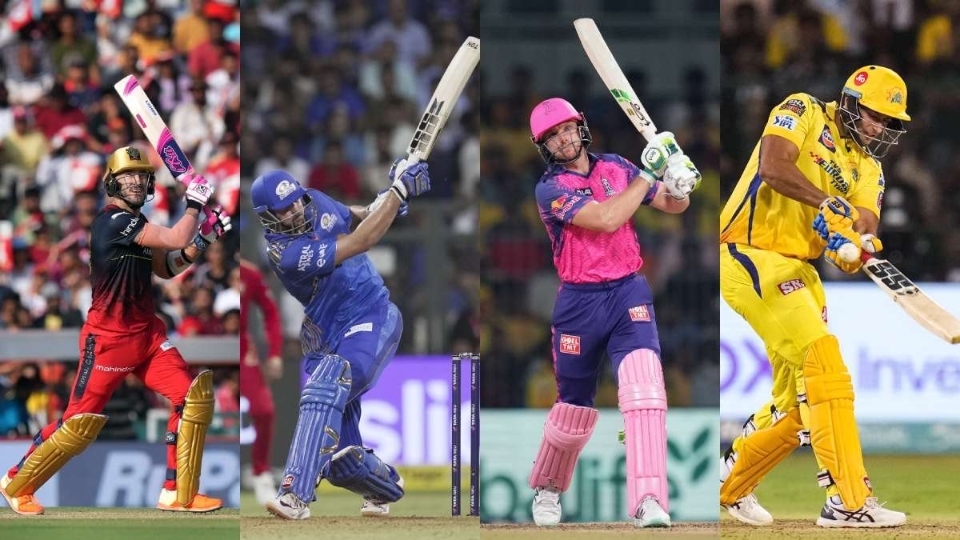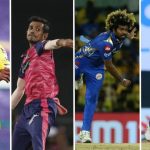The Indian Premier League 2025 has once again captured the imagination of cricket lovers around the world. Known for its glamour, fierce rivalries, and high-voltage entertainment, IPL is also the grand stage where some of the biggest sixes in cricket history have been recorded. This season is no different. Fans are already witnessing a flurry of towering hits from the game’s most explosive batters.
One of the early highlights of IPL 2025 came from Kolkata Knight Riders’ powerhouse, Andre Russell. The Jamaican all-rounder unleashed a jaw-dropping 102-meter six against Sunrisers Hyderabad at the iconic Eden Gardens, reminding everyone of his brute strength and match-winning capabilities. But while Russell’s hit thrilled the crowd, it still falls short of the longest six ever recorded in IPL history — a record that has remained untouched for 17 years.
That record belongs to Albie Morkel, the South African all-rounder who smashed a gigantic 125-meter six back in 2008. Facing Delhi Capitals (then Delhi Daredevils), Morkel’s thunderous hit set a benchmark that has stood firm despite numerous attempts by some of the world’s most powerful hitters.
The Challengers Over the Years
Over the seasons, many players have come close but not close enough to Morkel’s incredible mark. In the same year as Morkel’s record, Praveen Kumar, known more for his swing bowling, surprised everyone by launching a 124-meter six against Rajasthan Royals. Legendary Australian wicketkeeper-batsman Adam Gilchrist followed a few years later with a 122-meter six for Kings XI Punjab against Royal Challengers Bengaluru in 2011.
Robin Uthappa, during his stint with Mumbai Indians, joined the elite list in 2008 with a 120-meter hit against MI’s arch-rivals. And then there’s Chris Gayle, often dubbed the “Universe Boss,” who sent the ball 119 meters over the ropes against Pune Warriors India in 2013 — a strike that many thought would finally break Morkel’s record, but fell just a few meters short.
IPL 2025: New Contenders Emerge
This season, two new names have entered the conversation. Sunrisers Hyderabad’s Travis Head and Royal Challengers Bengaluru’s Phil Salt have each smashed a 105-meter six, making them the joint holders of the longest hit in IPL 2025 so far. Both players are known for their aggressive batting styles, and with more matches to come, they remain strong contenders to challenge the long-standing record.
With the tournament stretching over two more months, fans are hopeful that this might be the season when the elusive 125-meter mark is finally surpassed. Players like Russell, Head, Salt, and even the likes of Nicholas Pooran and Liam Livingstone — known for their raw power — are well capable of achieving this feat.
Why Morkel’s Record Stands Out
The reason Albie Morkel’s six continues to be legendary is not just the distance but the context. In the early days of IPL, with fewer technological advancements in tracking ball distances, such numbers relied on raw estimations and the sheer spectacle of the hit. Despite newer technologies like Hawkeye and ball tracking, no player has managed to officially register a six longer than Morkel’s.
As IPL 2025 unfolds with bigger crowds, better bats, and stronger athletes, breaking the record seems possible — but until then, Morkel’s towering six remains the gold standard.
So, will this be the year someone writes their name in history by hitting a six beyond 125 meters? Only time will tell, but one thing’s certain: the race for IPL’s biggest six is heating up, and fans worldwide are watching every ball with bated breath.
Longest Sixes in IPL History
Here is the updated list of the biggest sixes ever recorded in the history of the IPL:
| S.No | Player | Distance | Opponent | Year |
|---|---|---|---|---|
| 1 | Albie Morkel | 125 meters | Delhi Capitals (DC) | 2008 |
| 2 | Praveen Kumar | 124 meters | Rajasthan Royals (RR) | 2008 |
| 3 | Adam Gilchrist | 122 meters | Royal Challengers Bengaluru (RCB) | 2011 |
| 4 | Robin Uthappa | 120 meters | Mumbai Indians (MI) | 2008 |
| 5 | Chris Gayle | 119 meters | Pune Warriors India (PWI) | 2013 |



